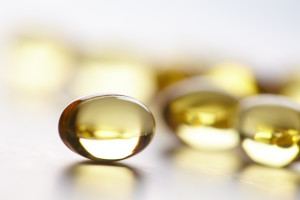By Iris Farrou
07 Sep, 2022
Lifestyle Tips, Menopause, Peri-Menopause, Prevention, Queer Health, Reproductive health, Sexual health, Women's Health
Aging and Painful Sex, Body Changes In Menopause, Easing the Symptoms of Menopause, Lubricants, Lubrication, Painful Intercourse, Peri-Menopause Health, Preparing for Menopause, Sex-Positivity After Menopause, Sooth Vaginal Pain During Intercourse, treatments for vaginal dryness, Vaginal dryness
One of the most often talked about symptoms of menopause is vaginal dryness. It would be ideal if it only showed up when menopause started, but unfortunately it can start happening even a few years before menopause. Just as a bonus, women can also experience vaginal dryness after childbirth, while breast feeding, or even if they are taking certain allergy medicine or certain antidepressants.
years before menopause. Just as a bonus, women can also experience vaginal dryness after childbirth, while breast feeding, or even if they are taking certain allergy medicine or certain antidepressants.
Back to the hormonal factors, however, vaginal dryness begin hand in hand with vaginal atrophy. A truly scary word, though it simply means your body is not producing as much estrogen as before. Estrogen is responsible for the natural lubrication, elasticity, and thickness of the cervix: once estrogen production goes down, the natural lubrication of the vagina is no longer happening, and the vaginal walls can experience thinning, drying, and possible inflammations.
Lubrication
Basically, it all comes back to lubrication: since your body’s natural lubrication system retires at the age of menopause, you need to supplement vaginal lubrication via external (internal) means. Most often, especially because vaginal dryness can lead to pain during intercourse, women will turn towards vaginal lubricants. Though a great solution, it is but temporary. For something more long lasting, you may want to look into vaginal moisturizers. You can apply them every few days to moisturize and keep vaginal tissue healthy.
There is also the option to reinvigorate vaginal tissues. Science really does wonders… this can be
a low dose vaginal estrogen cream, tablet, or ring. Note that this can be prescribed in additional
to other hormonal supplements you may be taking. It is meant to specifically tackle vaginal
dryness, especially if it persists while you are on hormonal treatment post-menopause. You will
need to discuss this option with your doctors and take into consideration any other health issues
you may have faced, particularly breast cancer.
There is also the option of an oral medication, Ospemifene or Osphena, which is more geared
towards addressing vaginal pain during intercourse. It is a selective estrogen receptor modulator,
SERM, medication but women who have a high risk of breast cancer, or have faced breast
cancer, best not consider it as an option. For more details on what this medication can do for you,
consult with your doctor or medical professional.
Another technique to help you ease painful intercourse if you are post-menopausal is a nightly
vaginal suppository containing dehydroepiandrosterone (DHEA).
It’s also important to note that vaginal stimulation or even regular sexual activity, solo or with a
partner, can absolutely help post-menopausal women keep their vaginal tissues healthy. Above
all, remember this is a very natural response of your body to hormonal changes, there is nothing
to be ashamed about, and it is well within your rights to seek healthy treatments that work for
you and your body. You owe it to yourself, and though we can’t turn back the clock, we can
make sure we are living pain-free and comfortable lives within the new parameters our bodies
present to us.
More
Normally, your body produces natural lubrication that keeps the vaginal area moist; however, a lack of moisture in the area can lead to vaginal dryness. At first, vaginal dryness may seem like a trivial annoyance, but it can lead to daily discomfort, while performing normal tasks (standing, sitting, exercising, and urinating), pain or discomfort during sexual intercourse, and emotional concerns.
Vaginal dryness typically arises when women encounter low estrogen levels, as estrogen keeps the vaginal tissue moist. While vaginal dryness can be encountered at any age, it’s more common in post-menopausal women. Besides age, other factors that may lead to low estrogen and vaginal dryness include: childbirth, breastfeeding, immune disorders, and cigarette smoking. Additionally, the use of certain cold/allergy, antidepressants, and anti-estrogen medication can also trigger this condition. Vaginal dryness is also common after ovary removal surgery and during cancer treatment.
Even though vaginal dryness affects roughly half of women after menopause, it’s infrequently discussed with doctors because it can be awkward or embarrassing. Symptoms can affect self-confidence and sexual confidence, leading to anxiety. Some women may misinterpret the symptom of vaginal dryness and mistake it for an STD, creating even more worry and anguish.
Do not use douche, lotions, and bubble baths. Even though they might be marketed for vaginal dryness, they can make the problem worse.
Best Treatment Options
 A Vitamin E 400 mg capsule applied into the vagina daily. If you make a small prick in the capsule, it will absorb faster.
A Vitamin E 400 mg capsule applied into the vagina daily. If you make a small prick in the capsule, it will absorb faster.- Cocoa butter wafers. You can also can insert one into the vagina each day while symptoms persist.
- Doctor prescribed solutions. Under doctor supervision, treatment may include application of local estrogen applied topically to your vaginal area. Typically, local estrogen will be in the form of small tablets or rings inserted into the area.
For discomfort during sexual intercourse, over-the-counter, water-based lubricant can help.
If vaginal dryness begins to affect your lifestyle or sex life, it’s time to speak with your doctor. Additionally, call your doctor if you begin experiencing any burning, itching, or additional discomfort. We are here to help.
More
 Sex should be a pleasing, and comfortable experience, so when our bodies inhibit our ability to truly enjoy intimate moments, it can be frustrating and discouraging–which may only further inhibit our ability to relax and enjoy the experience. Vaginal dryness is a condition that affects a significant number of women, but older women are particular susceptible. Vaginal dryness impacts more than half of post-menopausal women between the ages of 51 and 60. During menopause, women produce lower levels of the hormone estrogen. As a result, vaginal walls lose their elasticity, become tight and fragile, and are less able to accommodate the flexibility needed for comfort during sexual intercourse. In the most serious of cases, the vaginal walls can even tear or bleed during sex. If you are among the millions of women suffering from vaginal dryness, read the tips below to learn how to ease your symptoms and take back your comfort and confidence in the bedroom.
Sex should be a pleasing, and comfortable experience, so when our bodies inhibit our ability to truly enjoy intimate moments, it can be frustrating and discouraging–which may only further inhibit our ability to relax and enjoy the experience. Vaginal dryness is a condition that affects a significant number of women, but older women are particular susceptible. Vaginal dryness impacts more than half of post-menopausal women between the ages of 51 and 60. During menopause, women produce lower levels of the hormone estrogen. As a result, vaginal walls lose their elasticity, become tight and fragile, and are less able to accommodate the flexibility needed for comfort during sexual intercourse. In the most serious of cases, the vaginal walls can even tear or bleed during sex. If you are among the millions of women suffering from vaginal dryness, read the tips below to learn how to ease your symptoms and take back your comfort and confidence in the bedroom.
- Foreplay. It may sound like a simple solution, but too often the many constraints on our time cause us to rush sexual intercourse. Without proper foreplay, we don’t allow our bodies the time necessary to properly self-lubricate and prepare for penetration. By increasing the length of foreplay, a woman can naturally improve her moisture levels and reduce dryness.
- Vaginal lubricants. These over-the-counter products are intended to be used during sexual intercourse to help ease repeated penetration by temporarily providing a more slippery surface. Avoid products that boast unnecessary features like flavors and scents, and choose a product that will meet your needs by improving your comfort.
- Vaginal moisturizers. For many women suffering from vaginal dryness, a simple over-the-counter vaginal moisturizer applied regularly can greatly improve wetness and comfort during sex. Similar to body lotion, vaginal moisturizers can be used as a maintenance product to reduce dryness and improve daily moisture levels.
- Vaginal estrogen treatment. The most effective treatment for moderate to severe cases of vaginal dryness is a vaginal estrogen treatment. By increasing estrogen levels in the body, vaginal walls are restored to their pre-menopausal thickness, and will produce greater levels of vaginal mucus and secretions. There are three treatment options for vaginal estrogen. Treatment can be obtained in the form of an oral tablet, vaginal cream, or vaginal ring, which lasts for three months before needing to be replaced. Women at high risk for breast cancer should avoid estrogen supplements, especially if taking aromatase inhibitors to lower their breast cancer risk.
- Selective estrogen receptor modulators (SERM). SERMs are taken orally to help restore vaginal moisture and mucous. Ask your GYN if a SERM treatment may be right for you, but know that such oral treatments may increase your risk of blood clots and hot flashes.
- Vaginal dilators. In the most serious cases of vaginal dryness, the treatments above many not be enough. Prescription vaginal dilators are soft plastic rods in gradual sizes, ranging from three millimeters to ten millimeters in diameter. Their repeated insertions help allow for a gradual increase in overall vaginal dilation capabilities.
Most importantly, you don’t have to shy away from sex. When sex becomes uncomfortable, a natural reaction can be to avoid intercourse – and the pain associated. However, continued sexual activity, including masturbation, allows the vagina to maintain a greater level of elasticity over time. By continuing to be sexually active (safely of course!) you can slow and lessen the signs of vaginal drying, even during menopause.
The doctors at Chouchani, Sayegh and Bagnarello can help you with any question about your sexual health. Contact us today to make an appointment. We are currently accepting new patients.
More
 years before menopause. Just as a bonus, women can also experience vaginal dryness after childbirth, while breast feeding, or even if they are taking certain allergy medicine or certain antidepressants.
years before menopause. Just as a bonus, women can also experience vaginal dryness after childbirth, while breast feeding, or even if they are taking certain allergy medicine or certain antidepressants.
 A Vitamin E 400 mg capsule applied into the vagina daily. If you make a small prick in the capsule, it will absorb faster.
A Vitamin E 400 mg capsule applied into the vagina daily. If you make a small prick in the capsule, it will absorb faster.